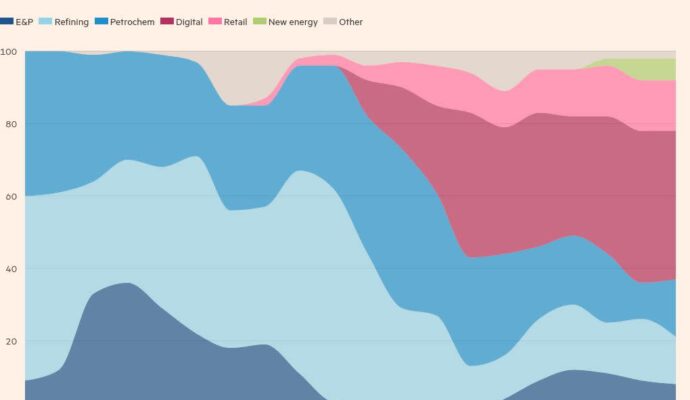Authorities have yet to impose hard lockdowns like the one seen in Shanghai in the spring, but some have resorted to tightened controls to contain outbreaks.
Starting on Thursday, Beijing will require negative polymerase chain reaction (PCR) test results issued within 48 hours before entering airports, office buildings, supermarkets, hotels, restaurants and public transport.
Earlier restrictions did not quell the outbreak as the capital reported more than 1,000 cases for the second day in a row on Wednesday, with 388 local cases and 1,098 asymptomatic infections.
The outbreak is concentrated in the commercial Chaoyang district, though other districts have reported sporadic cases, the Beijing government said, calling for Chaoyang residents to limit travel to other districts.
Beijing health authorities reiterated on Wednesday that companies should reduce the number of people working in offices, strictly monitor their health and increase sanitation.
Starting on Thursday, people arriving in Shanghai will be barred from entering public venues including restaurants, shopping centres, supermarkets, gyms and internet cafes for five days.
New arrivals should undergo three PCR tests within the first three days and one more test on the fifth day, the new policy said. If the test results are negative, the person’s health code will no longer show restrictions.
The policy immediately sparked controversy online, and the public questioned whether it meant travellers would have to prepare their own food for a week during trips to Shanghai for business or family visits.
The southwestern transport hub of Chengdu, in Sichuan, announced five days of daily mass testing for residents from Wednesday until Sunday. The city reported 185 cases and 288 asymptomatic infections on Wednesday.
The city encouraged employers to allow flexible working hours to encourage staff to participate in mass testing. Those wishing to enter public venues or leave Chengdu should also show negative test results from within 48 hours, it said.
Nearby Chongqing municipality has seen daily infections in the thousands, with the latest flare-up coinciding with a visit from Chinese vice-premier and Covid-19 “firefighter” Sun Chunlan on Monday.
Since November 11, when the central government eased Covid-19 restrictions, health authorities have repeatedly called for local governments to launch “targeted and precise” measures to avoid disruptions to public life.
Shijiazhuang, in the northern province of Hebei, was one of the first cities to heed the call, cancelling mass testing, closing testing booths and reopening public venues. But after a week of mixed reactions from the public and a resurgence of daily cases, it again announced mass testing and a five-day lockdown.



